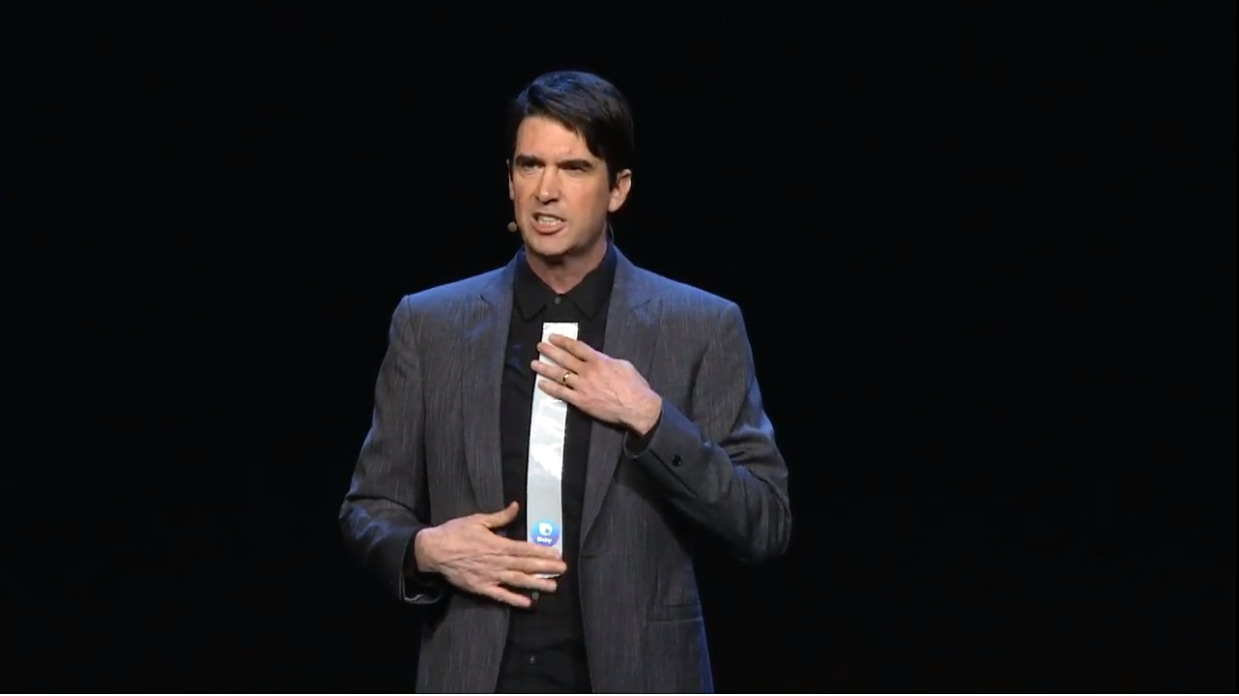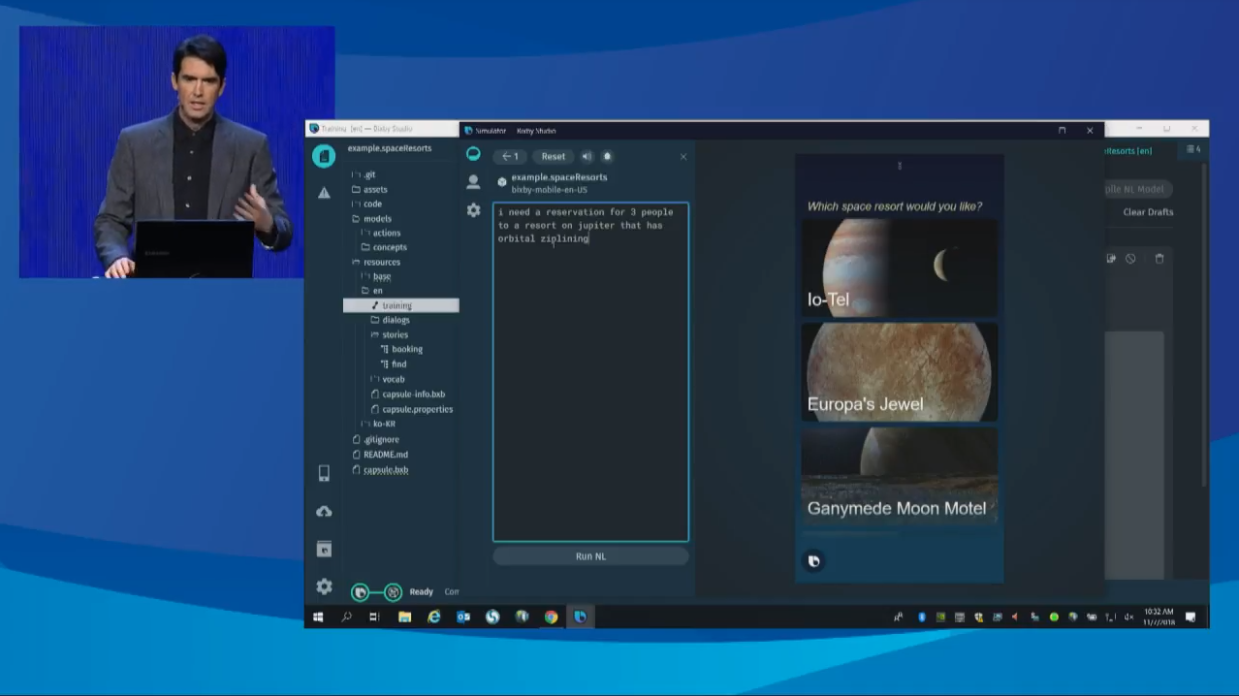Samsung Opens Up Bixby to Developers But Fails to Excite
Samsung has unveiled a new Bixby Developer Studio to make its assistant open. But Samsung's vision of the future isn't exciting.
Editors' Note: Updated at 12:29 a.m. ET with additional information from the Samsung Developers Conference.
Samsung really wants to evolve Bixby from a simple voice assistant to a scalable AI platform, and it just launched an initiative to help make that a reality: a new developer kit.
Unfortunately, the company did so in the least exciting way possible. This included showing how to book reservations on Mars with an oxygen bar. And a guy — Viv Labs CTO Adam Cheyer — wearing masking tape as a tie for some reason.

At Samsung's annual Developer Conference today (Nov. 7), Eui-Suk Chung, executive vice president and head of software and artificial intelligence, started by stressing that Samsung is deeply committed to AI
Part of this effort is re-imagining Bixby with a new three-pronged strategy.
- Putting Bixby on more devices — Samsung TVs, refrigerators, tablets and speakers. Expect to see it on more devices in the future
- Bixby will support five more languages, including Spanish, French and Italian.
- Making Bixby Open. Samsung is opening Bixby to all developers so they can build their own experiences. There will also be a Bixby marketplace coming soon.
Dag Kittlaus, CEO of Viv Labs, tried to make a case for Bixby as well. (Samsung acquired Viv labs in 2016, and Kittlaus helped create Siri). He argued that it's still early days for voice assistants, reminding the crowd that there were 12 other search engines when Google launched.
MORE: Best Smartphones - Here Are the 10 Best Phones Available
"Partners and brands that get in early are going to have a huge advantage," said Kittlaus.
Sign up to get the BEST of Tom's Guide direct to your inbox.
Get instant access to breaking news, the hottest reviews, great deals and helpful tips.

Samsung then showcased Bixby Developer Studio, an application that can be downloaded for Windows or Mac. In the studio you can create what's called capsules, which are basically AI-powered actions. (Hence the demo about using Bixby to book space adventures. And the tool seems fairly intuitive
What was lacking from Samsung's presentation was the polish and excitement that Apple and Google have delivered at their conferences, WWDC and Google I/O. Those two events are developer-focused, too, but Google and Apple usually intro their developer tools in a way that puts into context just how they'll help create new experiences for end users. Not so for Samsung: It didn't paint a great picture of what Bixby will be able to do or showcase a real-world example with a developer who maybe had early access to the studio.
And it wasn't like the company was hurting for examples. During the developer conference keynote, Samsung announced a media control developer tool that will help create voice-enabled apps for its smart TVs. Netflix, Hulu, HBO Now and Spotify are all on board with this, with support coming in the next year. Likewise, Samsung's including its upcoming Galaxy Home smart speaker in its Bixby Developer Studio so that app makers will be able to create new services tied to that device. Some demos showing exactly what those experiences might be would have helped build enthusiasm.
Bixby could very well catch up to the likes of Siri, Google Assistant and Alexa, but Samsung's Developer Conference didn't paint a very thrilling picture of that future.
Mark Spoonauer is the global editor in chief of Tom's Guide and has covered technology for over 20 years. In addition to overseeing the direction of Tom's Guide, Mark specializes in covering all things mobile, having reviewed dozens of smartphones and other gadgets. He has spoken at key industry events and appears regularly on TV to discuss the latest trends, including Cheddar, Fox Business and other outlets. Mark was previously editor in chief of Laptop Mag, and his work has appeared in Wired, Popular Science and Inc. Follow him on Twitter at @mspoonauer.

